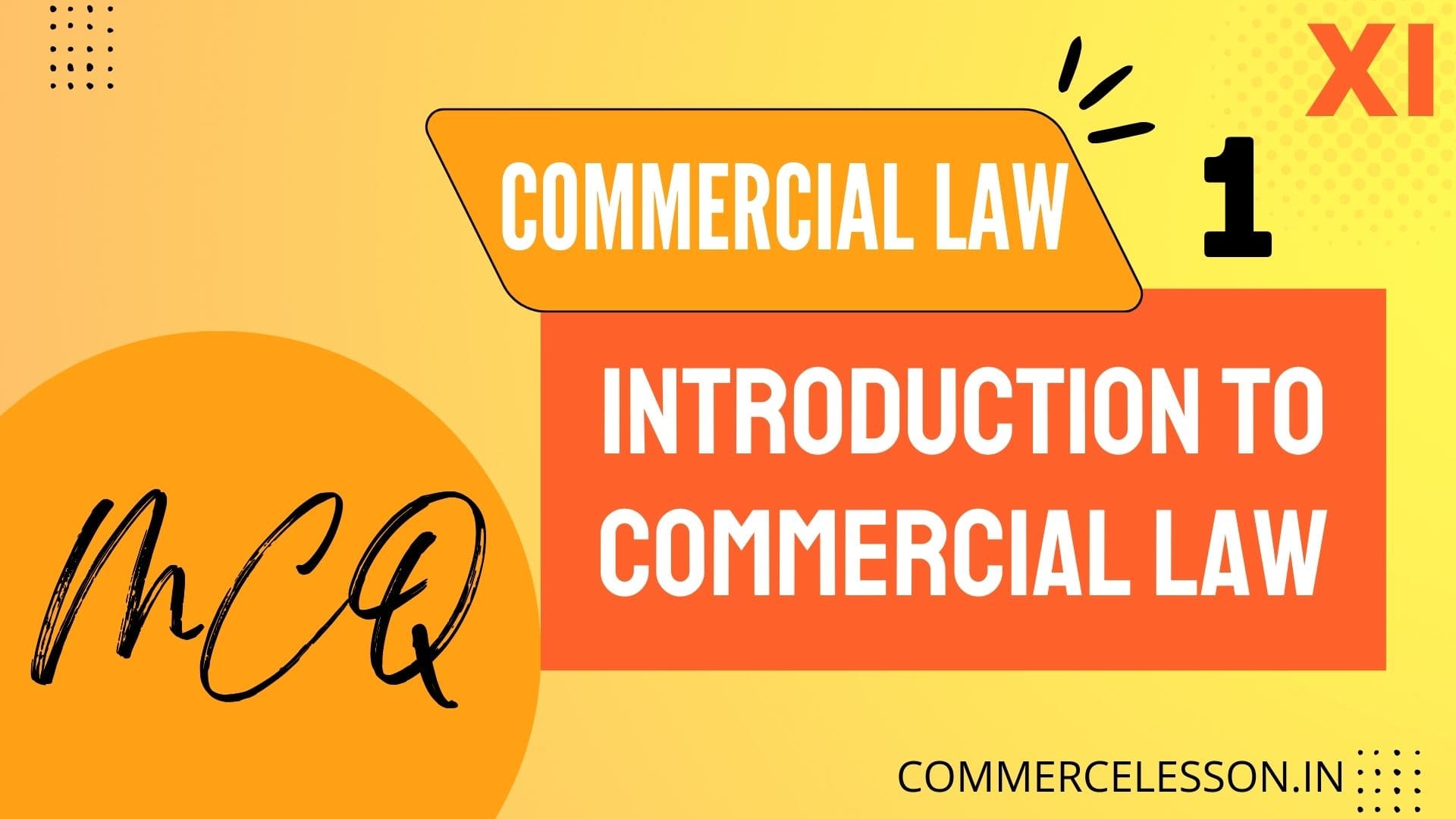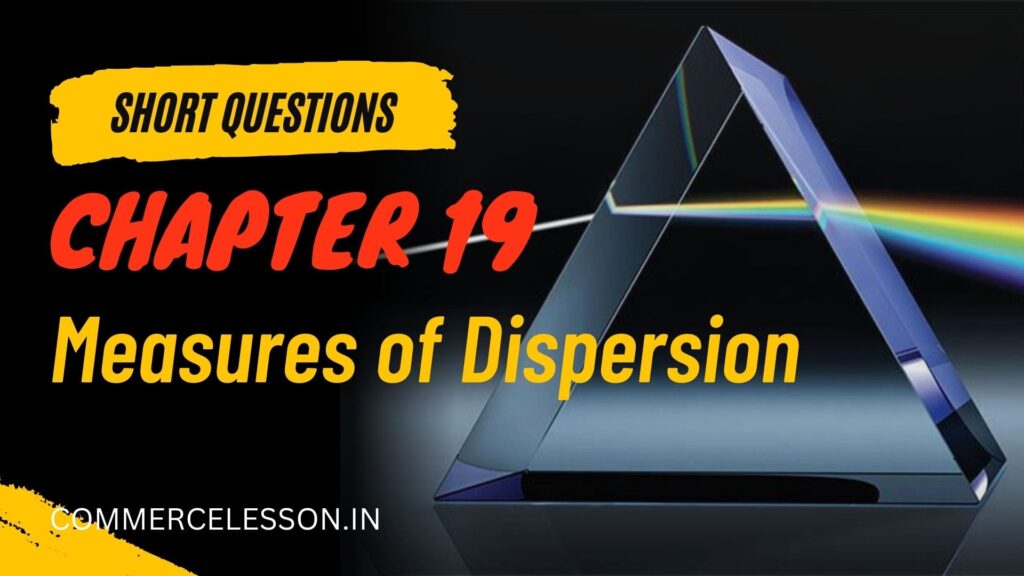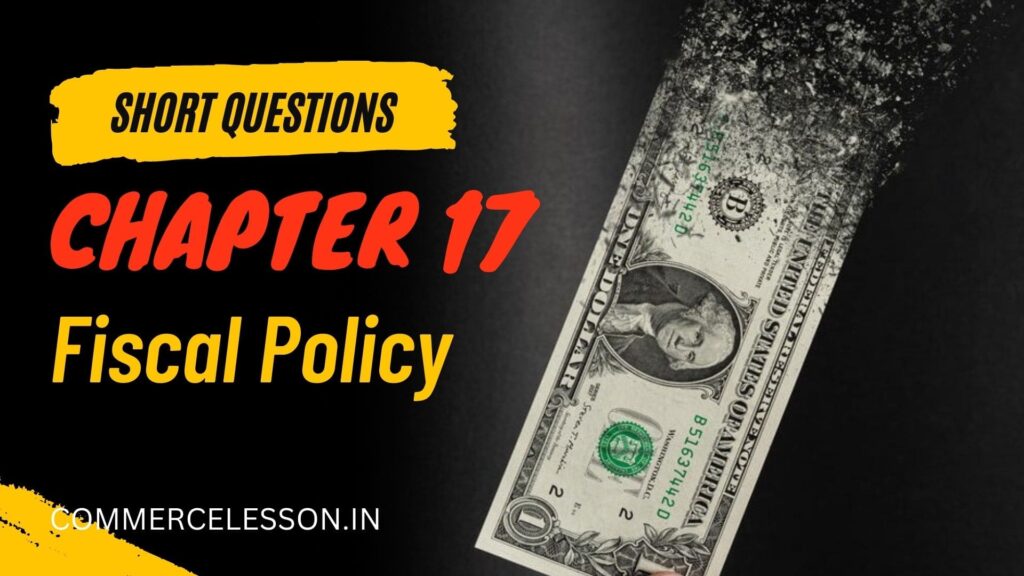Multiple Choice Questions (MCQ) [1 Mark each]
1. Ancient rules and regulations later became –
(a) Rules
(b) Laws
(c) Ethos
(d) None of these
2. A state statute is considered as –
(a) Law
(b) Rules and Regulations
(c) Instructions
(d) None of these
3. According to Lasky, the price paid for instinctive companionship is –
(a) Tax
(b) Law
(c) Rules and Regulations
(d) Discipline
4. Whose authority and power is behind the law?
(a) People’s
(b) Legislature’s
(c) Government’s
(d) Same level authority
5. General rules enacted by independent sovereign political authorities are called –
(a) Disciplines
(b) Laws
(c) Rules
(d) Instructions
6. What behaviour does the law regulate?
(a) Human behaviour
(b) Mental behaviour
(c) External behaviour
(d) All of these
7. Which of the following is not considered as commercial law?
(a) The Partnership Act
(b) The Companies Act
(c) The Factories Act
(d) None of these
8. Which of the following is not a source of Indian Commercial Law?
(a) Social needs
(b) Traditions and customs
(c) English Law
(d) None of these
9. Where are the laws enacted?
(a) In the Parliament
(b) In the Assembly
(c) In the Court
(d) Both (a) and (b)
10. The commercial laws that arose in the ports of Europe in the fourteenth and fifteenth centuries are called –
(a) Maritime
(b) Marine Insurance Act
(c) Lex Marcotoria
(d) La Martiniere
11. Which country’s law has not influenced Indian Commercial Law?
(a) English Law
(b) Roman Law
(c) Chinese Law
(d) None of these
12. Where justice cannot be done by law, judges rely on –
(a) Customs
(b) Conventional concepts
(c) Righteousness
(d) All of these
13. “Humans are social creatures by nature” – Who quoted this?
(a) Lasky
(b) Aristotle
(c) Rousseau
(d) None of them
14. “Law is the command of political superiors to subordinates” – Who quoted this?
(a) Holand
(b) Austin
(c) Woodrow Wilson
(d) None of them
15. What are the rules that are stable and backed by the authority and power of the government?
(a) Rules and regulations
(b) Instructions
(c) Laws
(d) Customs
16. What is the law to control the external behaviour of people in society?
(a) Commercial law
(b) Customs
(c) Societal law
(d) Tradition
17. The ancient source of law is _.
(a) Tradition
(b) Written instructions
(c) Customs
(d) None of these
18. Which of the following is not considered a characteristic of law?
(a) Law prevails at all levels of society
(b) Nation makes laws but does not enforce them
(c) Controls external human behaviour
(d) All of these
19. Which of the following is considered commercial law?
(a) Law of Contract
(b) Sale of Goods Act
(c) Partnership Act
(d) All of these
20. Which of the following is the source of Indian Commercial Law?
(a) Conventional customs and traditions
(b) Roman Law
(c) Legislation
(d) All of these
21. Source of Indian Commercial Law is –
(a) English Merchantile Law
(b) American Commercial Law
(c) Indian Companies Act
(d) None of these
Liked our post?
We are available with lots and lots of commerce-related content.





[…] Chapter 1 : Introduction to Commercial Law | Multiple Choice Questions (MCQ) | CLPA | Class 11 […]